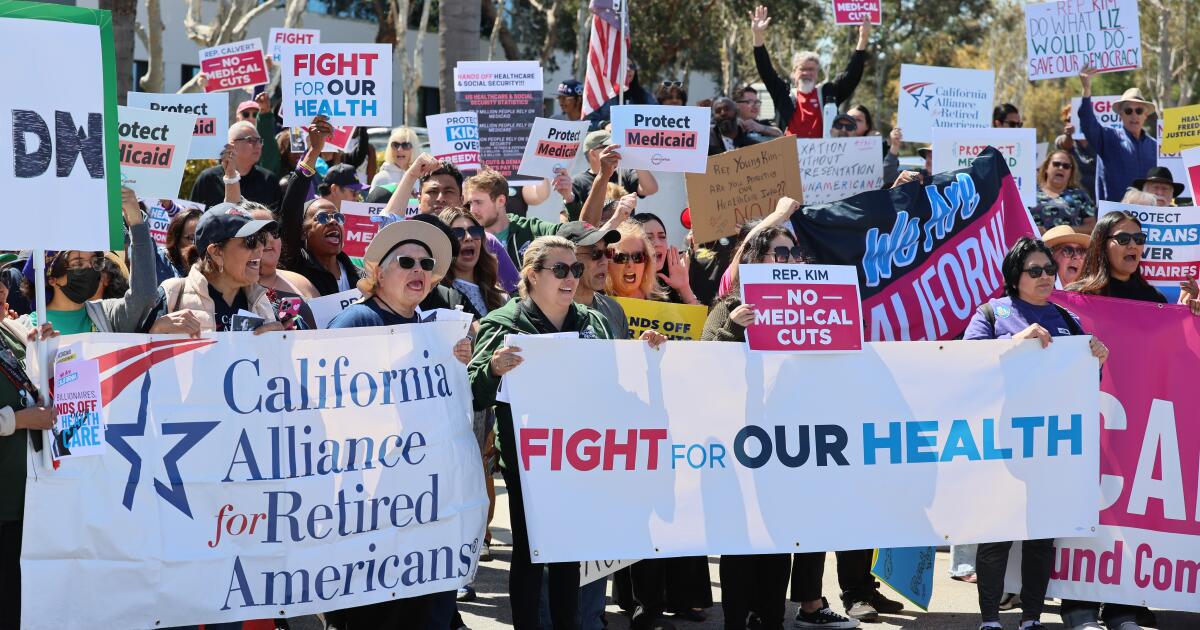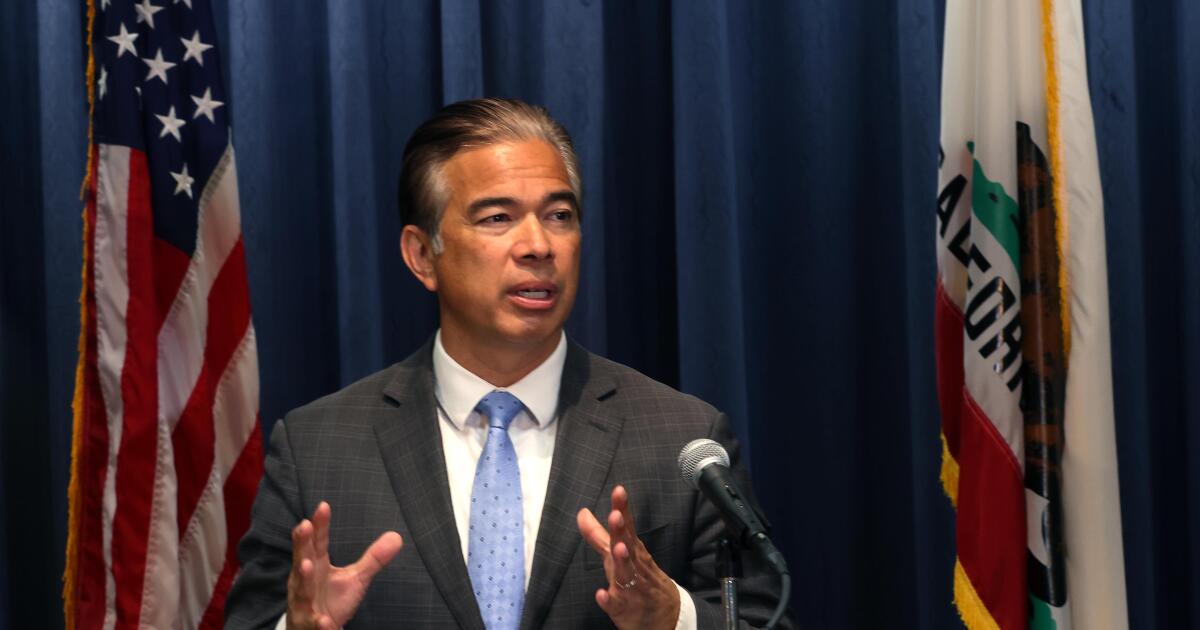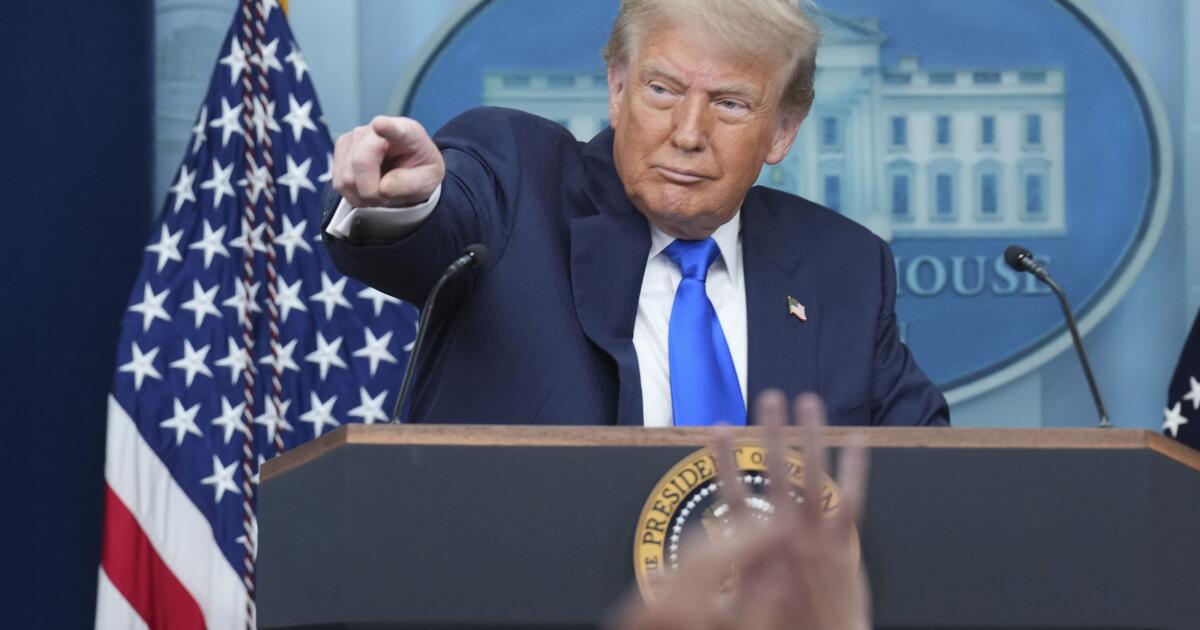Does California use a “loophole” to give Medicaid to undocumented immigrants?
Of all the finger-pointing and recriminations that come with the current federal government shutdown, one of the most striking elements is that the Trump administration blames it on Democratic support for granting taxpayer-funded healthcare coverage to undocumented immigrants. The White House has called out California specifically, saying the state exploits a legal “loophole” to pay for that coverage with federal dollars, and other states have followed suit.
“California utilized an egregious loophole — since employed by several other states — to draw down federal matching funds used to provide Medicaid benefits for illegal immigrants,” the White House said in a policy memo released Wednesday as a budget stalemate forced a shutdown of the U.S. government.
The administration said that the Working Families Tax Cut Act, which goes into effect in October 2026, closes the loophole by prohibiting the use of taxpayer money to provide healthcare coverage to undocumented immigrants and other noncitizens.
In the memo, the White House accused congressional Democrats of wanting to repeal those policy reforms as a condition to keep the government running.
Izzy Gardon, a spokeswoman for Gov. Gavin Newsom, said there’s nothing to the administration’s underlying assertion that California and other states have found some sort of loophole that enables them to funnel Medicaid money to noncitizens.
“This is false — CA does not do this,” Gardon said in a one-line email to the L.A. Times.
Healthcare policy experts agree. California is not exploiting a “loophole,” said Adriana Ramos-Yamamoto, a senior policy analyst at the California Budget & Policy Center, a nonprofit, nonpartisan organization that studies inequality.
“The state is making lawful, transparent budget choices to invest in health coverage with its own dollars,” Ramos-Yamamoto said in a statement to The Times. “These investments improve health outcomes, strengthen communities, and lower health care costs in the long run.”
At issue is Section 71117 of the Republican-backed “One Big Beautiful Bill Act,” which imposes nearly $1 trillion in reductions to federal Medicaid healthcare spending for low-income Americans over the next 10 years. The provision allows states “to finance the non-federal share of Medicaid spending through multiple sources, including state general funds, healthcare related taxes (or ‘provider taxes’), and local government funds,” as long as taxes on healthcare providers are imposed uniformly so as not to unfairly burden providers of Medicaid services.
The bottom line, analysts said, is the administration is citing a problem with the law that doesn’t seem to exist, at least not in California.
“The so-called California loophole references a provision in the law that ends a waiver of the uniformity requirements for provider taxes — this provision has nothing to do with using federal funds to pay for care for undocumented immigrants,” said Jennifer Tolbert, a healthcare expert at the nonprofit healthcare research, polling and news organization KFF.
“But the White House makes the claim that California uses the money they get from the provider tax to pay for care for undocumented immigrants,” Tolbert said.
Fact-checking the administration’s claim is all the more difficult because there are no official data on how states spend money collected from provider taxes, Alice Burns, another KFF analyst, added. What’s more, California is among several states that offer some level of Medicaid coverage to all immigrants regardless of status. And because California cannot be federally reimbursed for healthcare spending on people who are not in the country legally, those expenses must be covered at the state level.
The White House memo goes on to claim that if Democrats were to succeed at repealing the provisions in the Working Families Tax Act, the federal government would have to spend an additional $34.6 billion in taxpayer money “that would continue to primarily be abused by California to fund healthcare for illegal immigrants.”
This assertion also misconstrues the facts, according to KFF.
“What we do know is that the $35 billion in savings that is referenced in the White House Fact Sheet refers to the federal government’s estimated savings … resulting from states making changes to their provider tax systems,” KFF spokesperson Tammie Smith said. That is, the projected savings aren’t connected to healthcare for immigrants living in the U.S. illegally.
Political squabbling aside, California’s approach to medical coverage for low-income, undocumented immigrants is set to undergo a major shift thanks to provisions in the 2025-26 state budget that the Democrat-led legislature and Newsom approved in June.
Starting on Jan. 1, adults “who do not have Satisfactory Immigration Status (SIS)” will no longer be able to enroll in Medi-Cal, California’s Medicaid program, according to the state’s Department of Health Care Services webpage. Those who already have this coverage can keep it and continue to renew their enrollment. And starting on July 1, Medi-Cal enrollees who are age 19-59, undocumented and not pregnant will have to pay a $30 monthly premium to keep their coverage.
The changes, which Newsom called for in the spring to offset a ballooning Medi-Cal budget deficit, drew criticism from some immigrant rights groups, with the California Immigrant Policy Center describing the moves as “discriminatory.”
“In light of the militarized mass immigration raids and arrests causing fear and chaos across California, we are disappointed that the governor and the leadership in the Legislature chose to adopt a state budget that makes our communities even more vulnerable,” Masih Fouladi, the center’s executive director said at the time.
Everyone in California who qualifies for Medi-Cal will still be eligible to receive emergency medical and dental care, no matter their immigration status.







